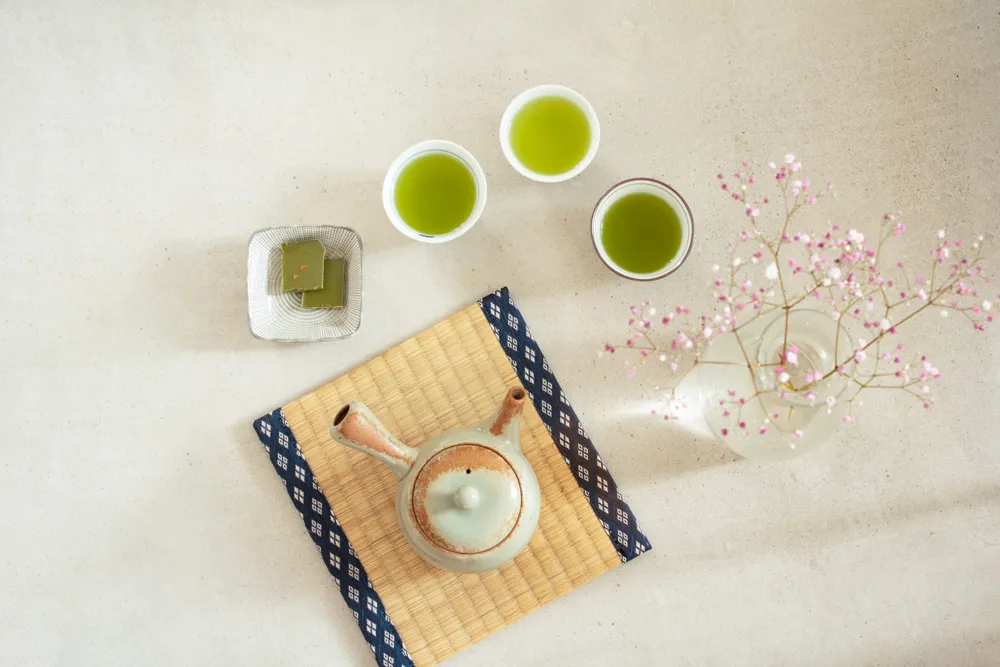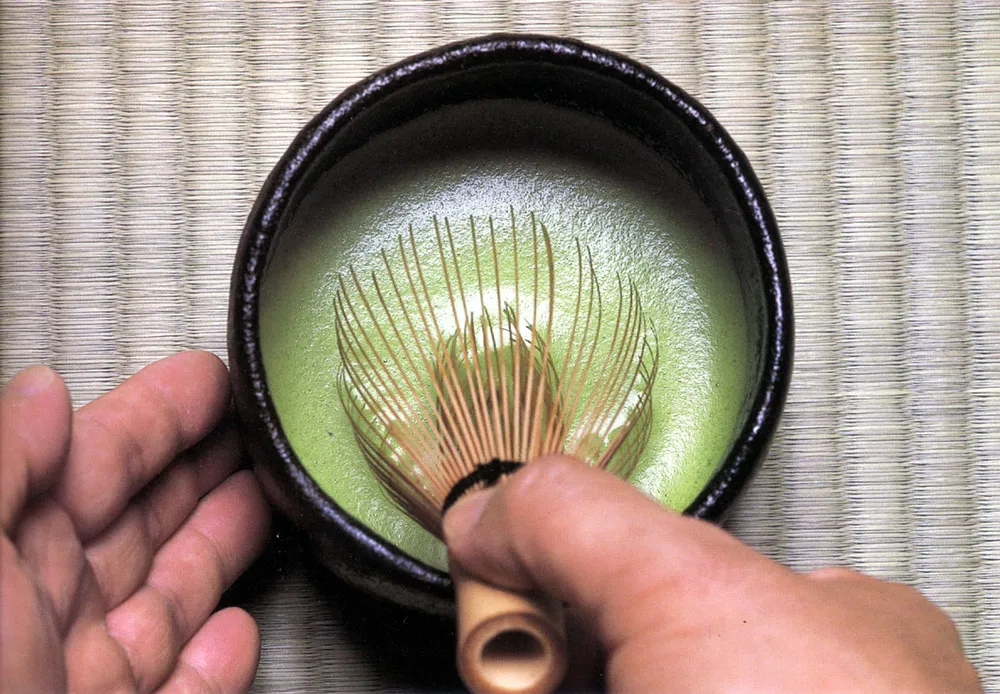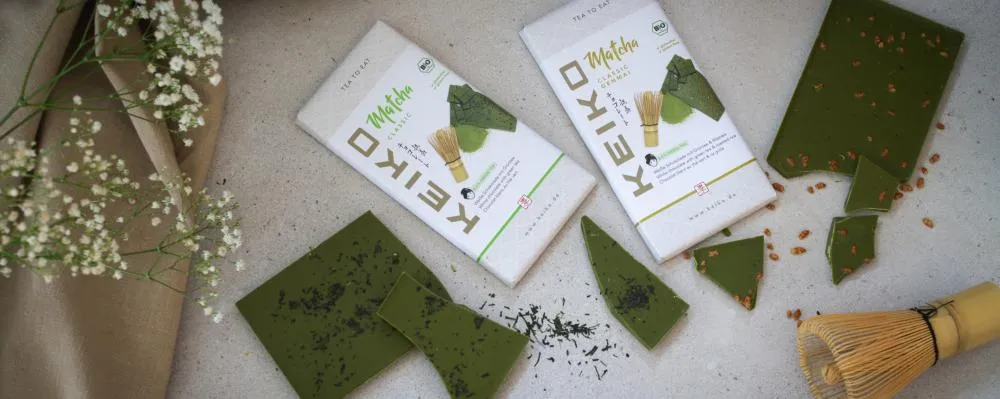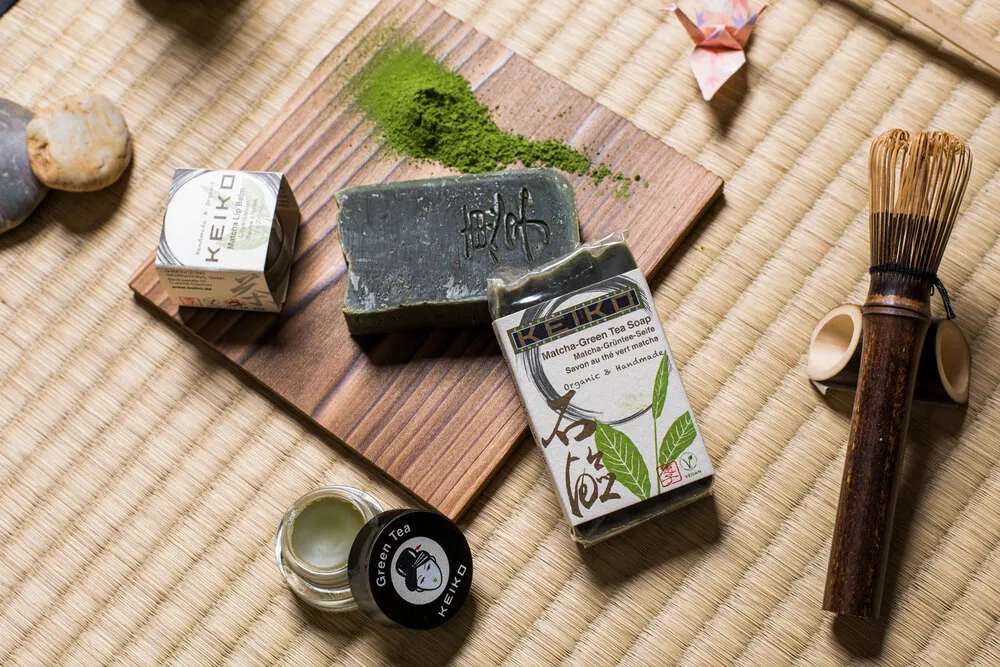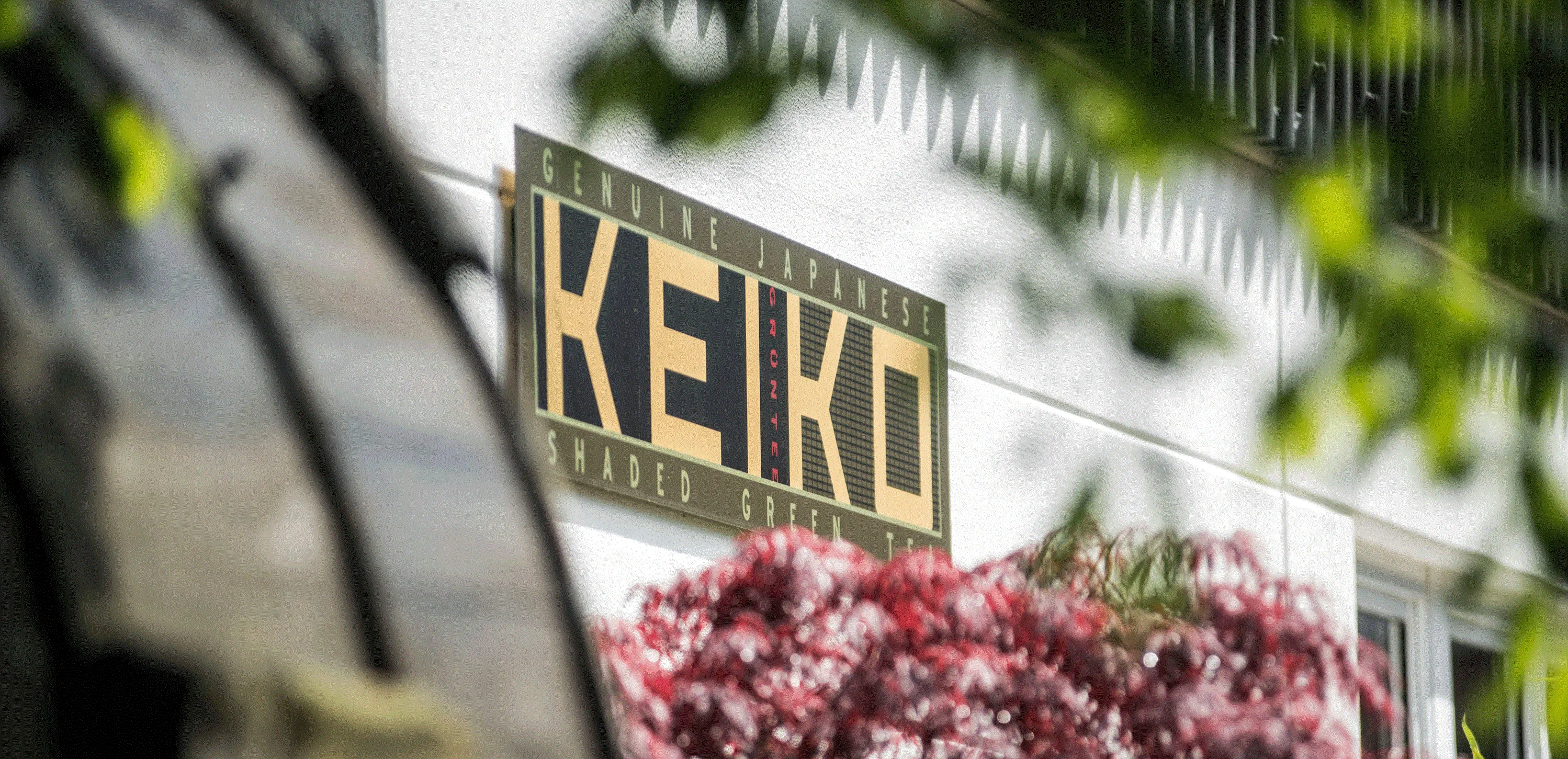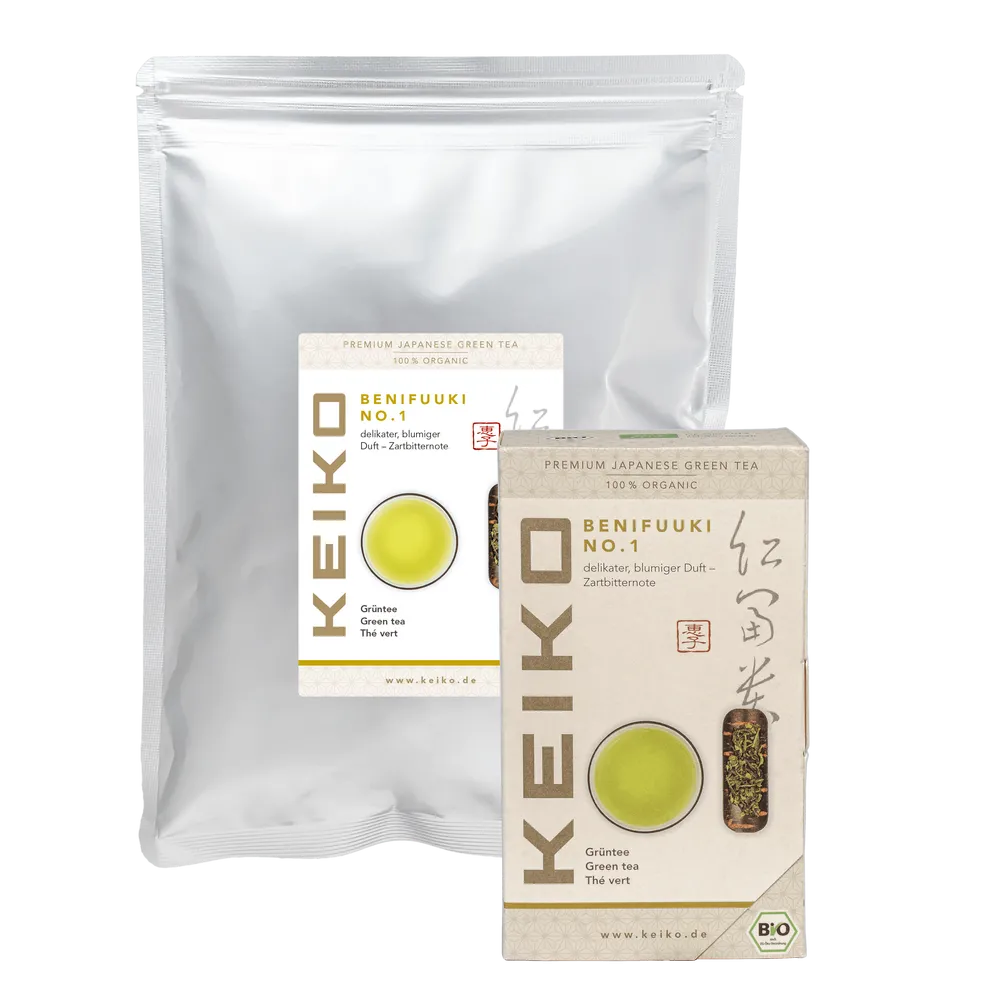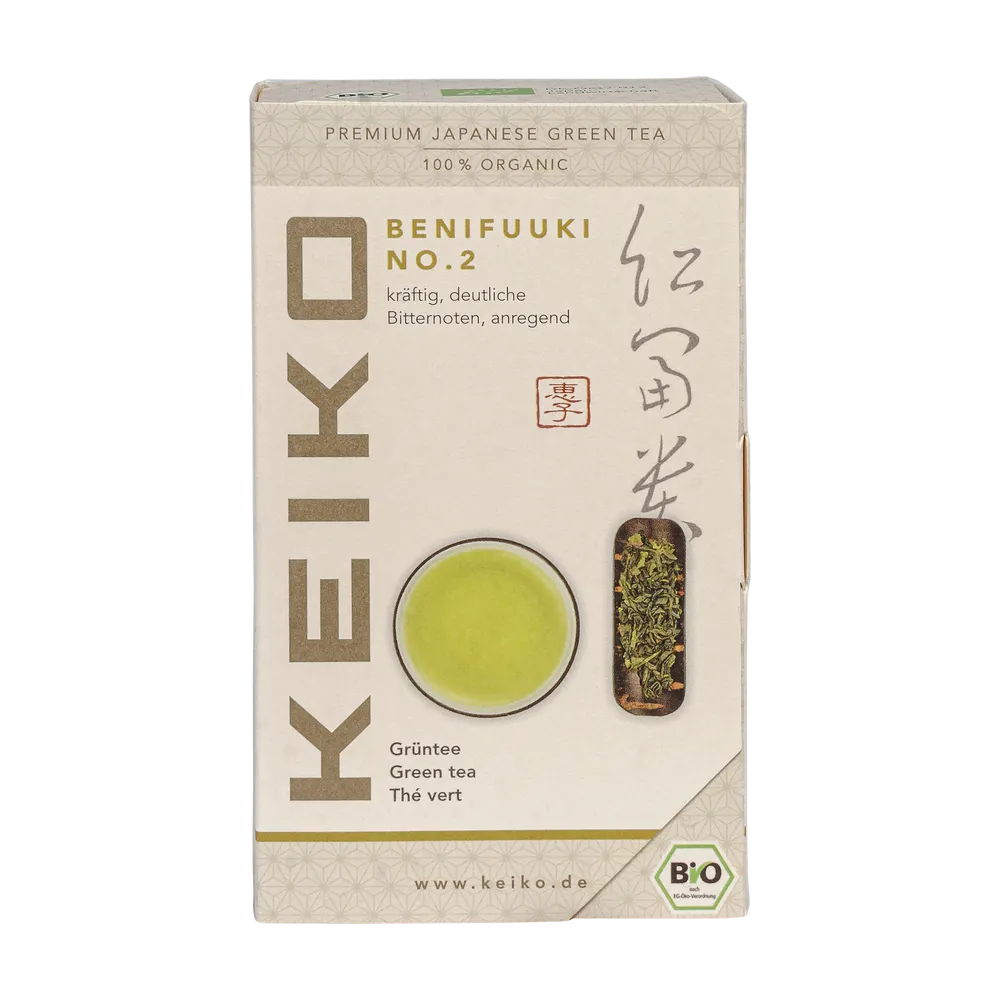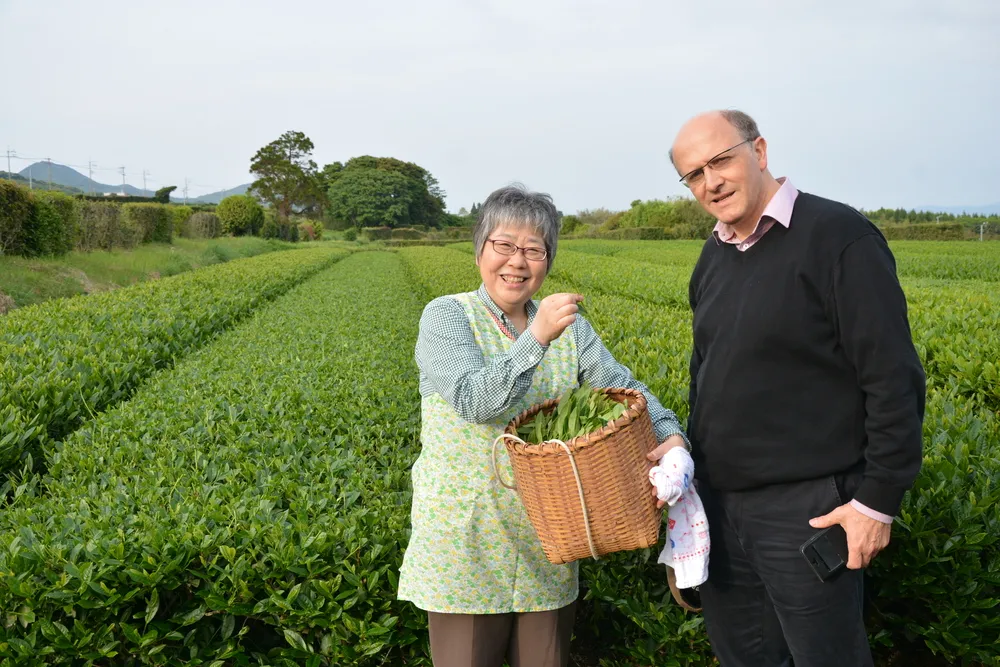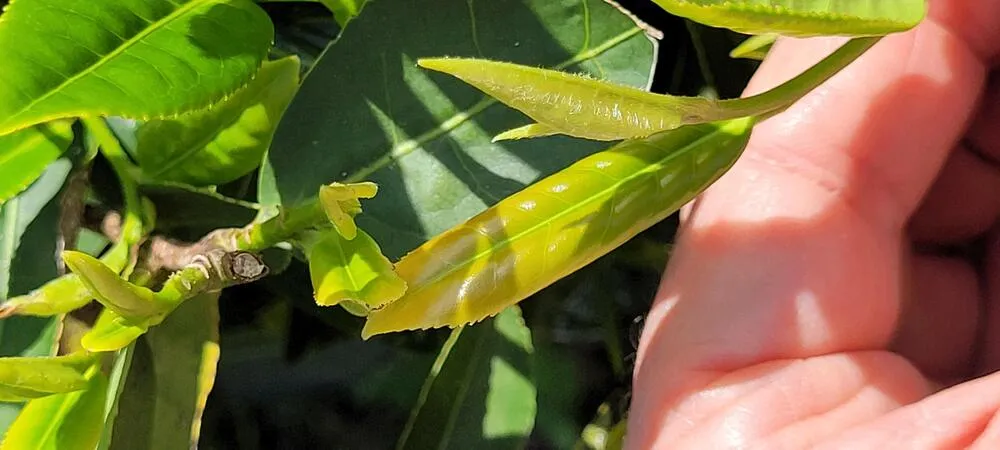Springtime is Benifuuki time
It tastes good all year round - but especially in spring, when hay fever and allergies are in high season, Benifuuki is an insider tip!
The cultivar and its benefits
Benifuuki is a relatively newly developed tea cultivar
in Japan with the scientific name Camellia Sinensis L.- Cultivar
Benifuuki. It is considered frost resistant and also very disease
resistant, making it particularly suitable for organic cultivation.The
cultivar is famous for its uniquely high content of various catechins
- flavonoids, which belong to the secondary plant substances. Of
particular interest is the catechin epigallocatechin gallate (EGCG) and
its special form, EGCG3, which is said to provide relief from allergies such as hay fever and neurodermatitis.
In
order to understand the extremely positive effects of the tea, KEIKO is
in dialogue with the Kagoshima Tea Research Institute and the Japanese
scientist Mari Maeda-Yamamoto, who has been researching the beneficial
properties of this unusual tea cultivar for many years (pictured with
Markus Hastenpflug).
At KEIKO Biofarm, in collaboration with the Kagoshima Tea Research Institute, an individual processing and steaming method
was developed specifically for the cultivar Benifuuki, which makes the
richness of sensitive ingredients (especially EGCG3) available from the
leaf in the best possible way and stabilizes them at the same time.
A unique taste
But Benifuuki tea is also very interesting in terms of taste: unlike the classic KEIKO teas, KEIKO Benifuuki is just slightly fermented after harvesting, which creates an oolong-like note. In addition to the characteristic tart flavor due to the high catechin content, it captivates with a wide spectrum of possible flavors, depending on when it is picked and how it is prepared.
From a light, exquisite bitter note reminiscent of artichokes, the characteristic floral aroma
of Benifuuki unfolds. By choosing the plucking, the dosage, the water
temperature, and the infusion time, you can serve a floral-scented, a
bittersweet, or a full-bitter green tea with Benifuuki. Follow our tips
to find the preparation that's right for you and pthe best possible
flavor from this exciting tea!
A few tips for the preparation
Loose leaf tea
Aroma,
active ingredients and the delicate floral fragrance unfold at a
relatively hot infusion temperature of about 80°C and one teaspoon of
tea leaves per 100 ml. The infusion time is 90 seconds. We recommend
brewing 3 infusions. For a stronger tea you can increase the dosage or
the infusion time, if you prefer it milder, reduce the infusion time a
little.
Benifuuki is a particularly sensitive tea when it comes to the preparation - but it's worth experimenting, because the range of flavors depending on how it's brewed is amazing!
Powder
the
Benifuuki powder can be whipped like a traditional Matcha in a tea bowl
with a tea whisk (Chasen) or prepared with a milk frother or blender.
To avoid bitter lumps, sift the powder beforehand or blend first with a
small amount of water to form a creamy paste before adding the remaining
water.
One strong or two light servings per day are recommended.
Because
of the intense taste of Benifuuki powder, we recommend that you
approach the dosage that is pleasant for you in terms of taste.
The
powder can also be used very well in the kitchen, especially in
desserts or simply as an ingredient in granola, smoothie and yogurt.
Tip:
If desired, the Benifuuki gives off a lot of bitter substances when
used in intensive doses, very hot water or long infusion times. If
Benifuuki is too strong for you however, you can round off the taste of
the tea with the very mild and slightly sweet tasting mulberry leaves or with mulberry leaf powder. In combination with Benifuuki, the mulberry leaves give a very pleasant, harmonious aroma and incidentally reduce the caffeine content of the tea.
So which Benifuuki is best for you?
Benifuuki No.1, from the 1st plucking, is particularly fragrant and has the highest content of L-theanine among the three pluckings, a high catechin content with medium caffeine content.
Benifuuki No.2, from the 2nd plucking is slightly more tart in taste, contains the most caffeine and has a particularly high content of EGCG and EGCG3.
Aki Benifuuki from the autumn picking is characterized mainly by the low caffeine content and yet high levels of EGCG and EGCG3. Aki Benifuuki is lighter in taste than the first two pickings.
The Benifuuki powder
is a blend of the three pickings. In powdered form, you can absorb the
active ingredients of the whole leaf and thus all the ingredients. Due
to its intense aroma, the powder is very economical in use. Compared to
matcha, even half the usual dosage produces a finely fragrant tea that
foams particularly well. The powder is ground very finely and freshly on
site on stone mills in Diepholz.
Tip: Leave the tea in the aroma
protection package after opening and brush out the air when closing.
The tea should be stored in a cool place - preferably in the
refrigerator or freezer. After opening, the powder should be used within
4-6 weeks if possible.
Related products
Average rating of 4.7 out of 5 stars
Content: 0.05 kg (€259.00* / 1 kg)
Available, delivery time: 1-3 working days (in Germany)
Average rating of 4.5 out of 5 stars
Content: 0.05 kg (€219.00* / 1 kg)
Available, delivery time: 1-3 working days (in Germany)
Available, delivery time: 1-3 working days (in Germany)

